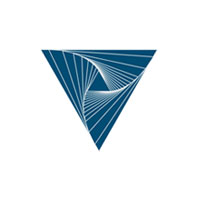Researchers from all disciplines are confronted with ever-increasing amounts of data. The newly founded Rhine-Ruhr Center for Scientific Data Literacy (DKZ.2R) has set itself the goal of supporting and promoting researchers from a variety of research disciplines with regard to increasingly complex data analysis, data management, and high-performance computing.
DKZ.2R is one of eleven data competence centers in Germany funded by the Federal Ministry of Education and Research (BMBF), and it will be funded for a period of three years with a total of around three million euros.
DKZ.2R is made up of nine research-strong universities, institutes, and centers in the Rhine-Ruhr region. These include Forschungszentrum Jülich, RWTH Aachen University, Aachen University of Applied Sciences, the University of Cologne, Rheinische Friedrich-Wilhelms-Universität Bonn, Bonn-Rhein-Sieg University of Applied Sciences, the Fraunhofer Institute for Intelligent Analysis and Information Systems, Ruhr-Universität Bochum, and the University of Duisburg-Essen. The project is headed by Prof. Dr. Stefan Sandfeld from Forschungszentrum Jülich and Prof. Dr. Matthias Müller from RWTH Aachen University.
The availability of ever larger and more complex amounts of data requires comprehensive skills that researchers often have to learn independently. This begins with the consideration of how scientific data should be collected so that, for example, artificial intelligence methods can be used effectively. But it also includes questions about how data should be stored, annotated, processed, evaluated, and published. The DKZ.2R therefore focuses on a combined methodological data competence, which consists in particular of data science and machine learning, high-performance computing and research data management. With the wide-ranging key domains of mathematics and computer science as well as life sciences, natural sciences and engineering, the Data Competence Center thus offers services for a broad range of domain scientists. It enables them to break through data-related barriers and promotes synergies between the disciplines.
The DKZ.2R offers researchers at different career stages a range of different services to improve their skills in dealing with research data. These include curated training courses, a range of advisory services including scientific consulting, scientific hackathons and data challenges, data cafés, and software tool development and integration.
The "Research Tandems" format offers young researchers opportunities for interdisciplinary collaboration with researchers from other domains but with similar methodological problems in the fields of machine learning and artificial intelligence, high-performance computing, or research data management. The tandems and trios are supported by scientific consultants.
The data competence center is intended to serve as a point of contact for researchers and create a place for learning and networking. This will strengthen interdisciplinary research and create a strong basis for promoting data-based innovations.
In addition to the institutions directly involved in DKZ.2R, the project also maintains close links with the Helmholtz School for Data Science in Life, Earth, and Energy (HDS-LEE), the National Research Data Infrastructure (NFDI), the LAMARR Institute for Machine Learning and Artificial Intelligence, the Landesinitiative für Forschungsdatenmanagement fdm.nrw, and many more.
University of Cologne as part of the DKZ.2R
The CDS, ITCC, and C³RDM are the three institutions at the University of Cologne who participate in the DKZ.2R. The PIs are Axel Klawonn (CDS director) and Stefan Wesner (CDS vice director, head of ITCC); Stefan Wesner has the local project lead. Together, the CDS, ITCC, and C³RDM contribute extensive expertise in research, data and computing services, and support in the areas of data science and machine learning, research data management, and high-performance computing.
